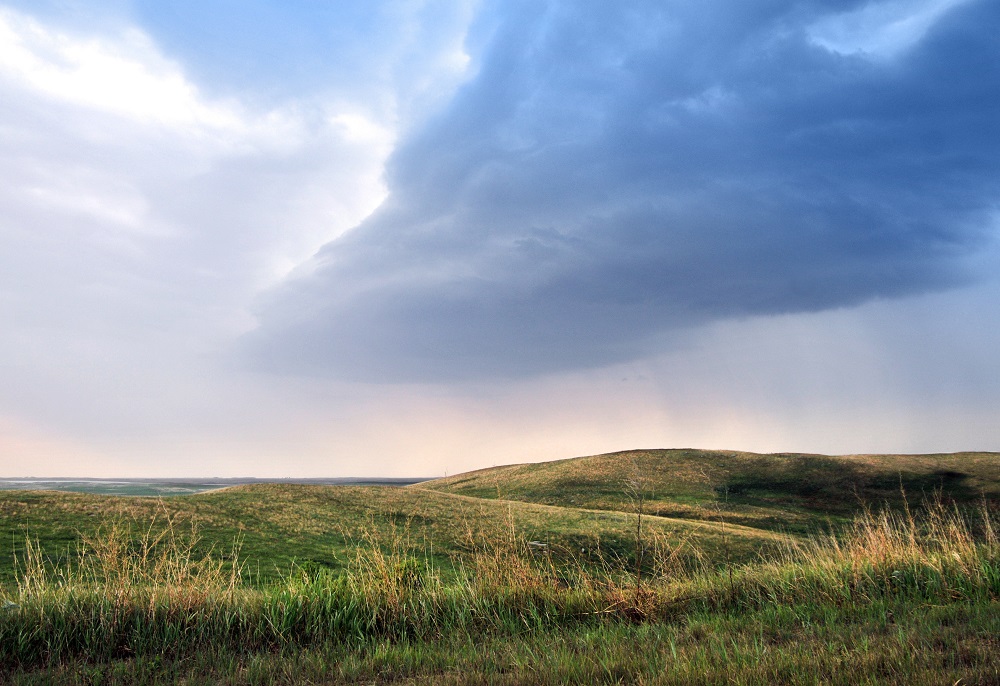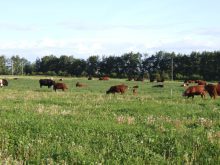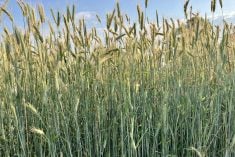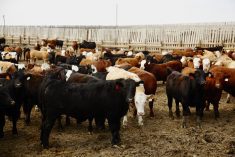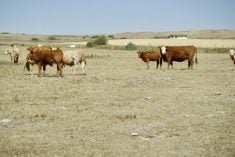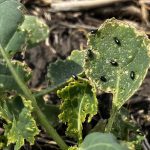The Weston Family Foundation has injected nearly $25 million into grassland conservation efforts in Canada, giving a major boost to five organizations protecting prairie ecosystems.
Canada’s native prairie ecosystem is home to hundreds of species of wildlife, including everything from northern leopard frogs to swift foxes, while simultaneously supporting beef herds and other livestock. Grasslands also sequester carbon, giving them a potential role to play in mitigating climate change, and serve as stopping grounds for migratory birds. But decades of urban sprawl, cultivation and other development have eaten up 70 per cent or more of Western Canada’s native prairie.
Read Also

Why post-drought pasture management matters for beef farmers
Pasture management is always important, but it is especially important following a drought. During these challenging periods, pastures may suffer…
“The Canadian prairie grasslands are some of the most ecologically valuable and threatened ecosystems in the world and we have an opportunity now to protect them for future generations,” said Eliza Mitchell, director of the Weston Family Foundation in a release. “We’re launching this initiative to bring together a diverse group of conservation and agricultural organizations to accelerate the adoption of sustainable approaches to protect and restore biodiversity in this unique landscape.”
The Nature Conservancy of Canada, Ducks Unlimited Canada, Saskatchewan Stock Growers Foundation, Grasslands National Park (Parks Canada), and Meewasin Valley Authority are receiving funding over a five-year period through the Weston Family Prairie Grasslands Initiative. Between in-kind donations and additional funding from the five organizations, the investment will total $70 million over the next five years.
The initiative ultimately aims to improve long-term ecological and economic stability by improving species-at-risk habitat, expanding the land protected in the Prairies and enabling wildlife movement. The projects will touch “nearly four million acres of priority native grasslands in one of the largest prairie grasslands conservation efforts in Canadian history,” notes the Weston Family Foundation release.
One focus of the initiative is working landscapes and the roles producers play preserving habitat. The Saskatchewan Stock Growers Association, which launched its own foundation in January, has been working with ranchers to protect native prairie habitat and species–at–risk for years. The foundation is slated to receive $3.4 million from the Weston Family Foundation for its programming that supports ranchers’ environmental efforts. Ray McDougald, Saskatchewan Stock Growers Foundation chair, noted in a release that native grasslands are a refuge for 31 species–at–risk, and an important forage source for cow-calf producers.
“We are building on the success of Species at Risk Partnerships on Agricultural Lands’ first five years to achieve real environmental outcomes ― projects that enhance the grasslands and species-at-risk habitat, and also increase the viability of ranching, enabling a younger generation of ranchers to continue caring for the prairie,” said McDougald.
The initiative has also earmarked $5 million for Ducks Unlimited Canada’s conservation easement program, which will cover nearly 25,000 acres of habitat. Conservation easements are legal agreements between landowners and Ducks that keep the land in private ownership while protecting habitat in perpetuity.
“We have a strong relationship with, and a deep respect for, the farmers and ranchers who steward the lands that support biodiversity in Canada,” said Karla Guyn, chief executive officer for Ducks Unlimited Canada, in a release.
“Working together, we can unite the needs of conservation and agriculture on this important working landscape.”

